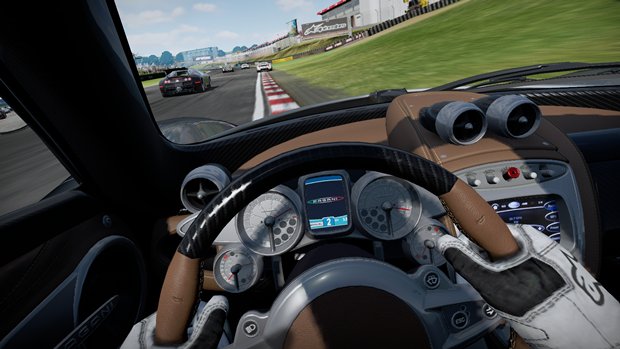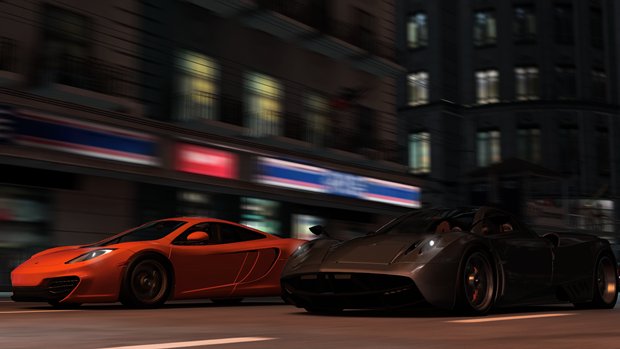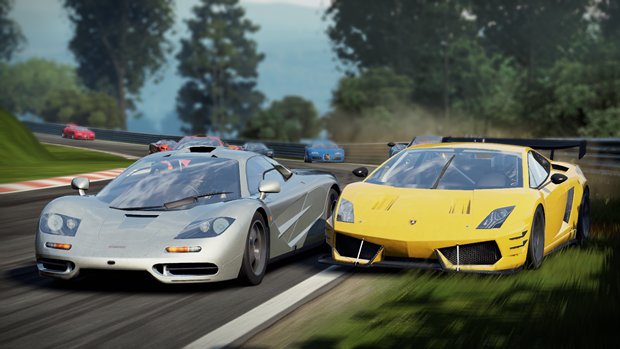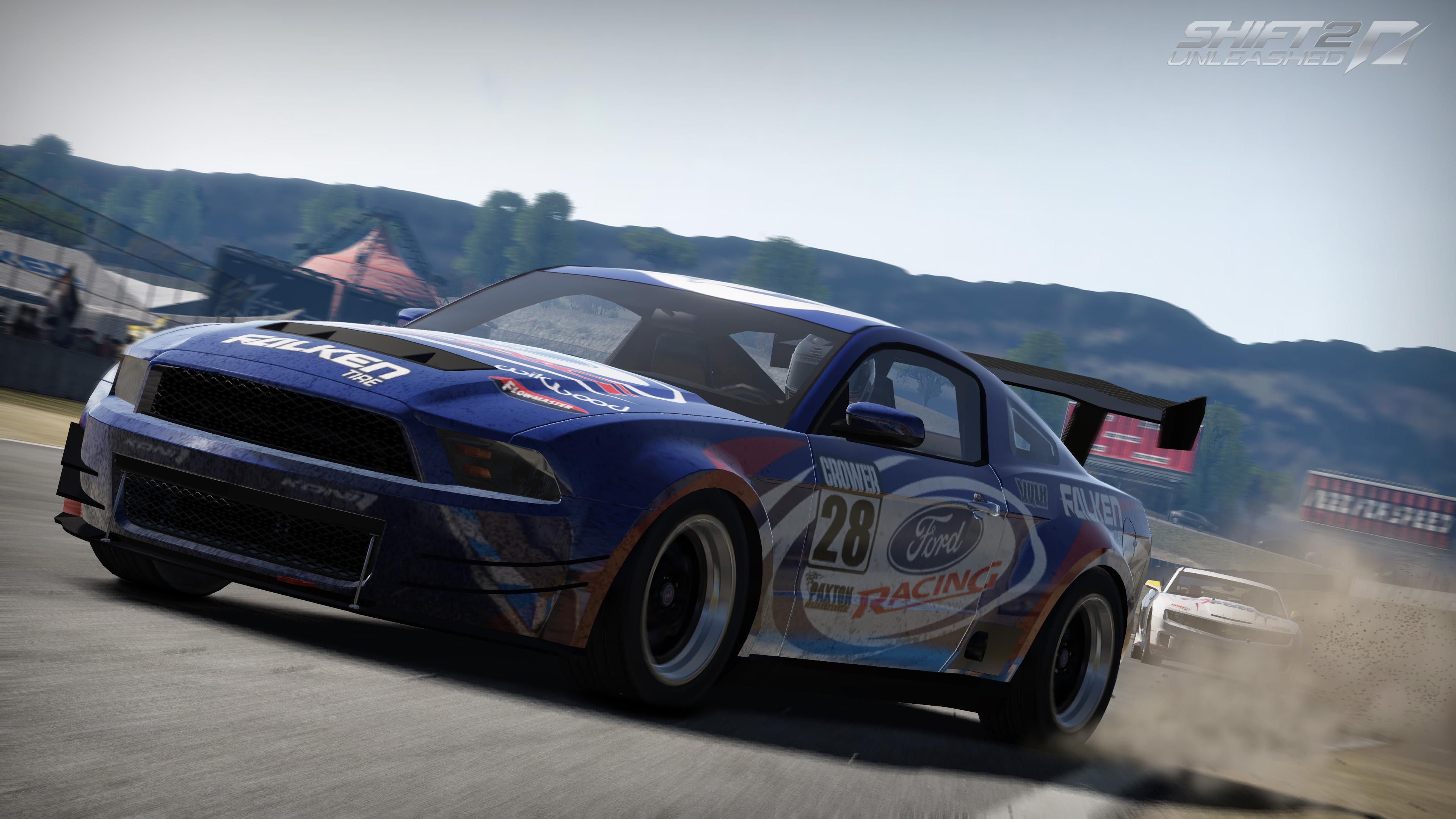GamesRadar+ Verdict
Pros
- +
Sim racing that actually feels fast
- +
Being able to select from a variety of events
- +
Fully customizable cars
Cons
- -
Anti-aggressive physics can brutally punish mistakes
- -
No rewind feature
- -
Bad off track graphics
Why you can trust GamesRadar+
Somewhere low on the totem pole of gaming fanboy rivalries, far beneath Sony vs Microsoft and PC vs Console, exists the simulation racing vs arcade racing debate. Arcade fans say “I don’t give a rat’s ass about adjusting flux capacitors and tuning F-nork ratios, I just want to jump into a bad ass car and have fun!” Simulation fans say “But what’s the difference between cars if they can all go 200 mph sideways around a turn? Customizing and tweaking is fun!” The basic problem is that simulation games tend to feel too dry, while arcade games tend to feel too ridiculous. GRiD did a fantastic job blurring the line, but with Codemasters now focused on the rally minded DiRT 3, Slightly Mad studios has stepped up with Shift 2 and delivered one of the year’s best racing games.
Make no mistake about it, Shift 2 definitely leans heavily towards sim racing, but its DNA has been spliced with a big dose of arcade adrenaline. All the gloriously anal retentive upgrading and tweaking is there for the die-hards, but the real focus has been shifted to the racing itself. Shift 2’s greatest triumph is its loud, angry and realistic presentation. Engines roar, tires wail in agony, brakes whine, transmissions clatter and slam into gear, while rocks and dirt are kicked up from the track on to your windshield. You never feel like you’re watching a bunch of slick polygons gliding across a bump mapped track; you get to feel the true brutality of driving a race car.
The much touted helmet cam plays a big role in capturing this realism, placing the player’s perspective from within the helmet itself. The way the point of view subtly looks towards the apexes of turns as you approach is a nice touch, serving as an unobtrusive but helpful guide. It’s a minor touch, but it captures the cacophony of noise and claustrophobia one gets from being strapped into caged race car, wearing a helmet.

Shift 2 has polished out virtually all of its predecessor’s weak spots, most notably the physics engine is improved, with cars feeling more stable at high speeds and no longer reacting erratically to bumps and changes in the track. The difference between a heavy, high-powered Mustang and a flyweight Caterham is immediately noticeable both in handling and collisions; the Caterham may be generally faster, but it’s in big trouble when trying to muscle its way through packs of heavier cars.
Shift 2’s adjustable assists and AI difficulty allow you to tweak the game to your preferred level of realism, though keep in mind that even at the easiest settings this is still a simulation game. The game’s Forza-esque Performance Index also keeps multiplayer and career fair, with a number value given to every car in relation to its sportiness and level of tune. The AI has been markedly improved, with drivers in Shift 2 randomly spinning out or wrecking while doing their best to avoid collisions. They rarely feel like drones cruising the track on rails.

That said, Shift 2 is very unfriendly to aggressive drivers; rear ending other cars is a terrible strategy as it almost always causes the aggressive driver to get locked into the leading car and spin out. AI drivers, while usually fair, will aggressively punish you if you start slamming into them. This may sound annoying to some, but it goes a long way to encouraging actual driving instead of playing bumper cars with the AI and acting a twit. It’s rare that the AI is so openly aggressive, but expect brutal rushes off the line for the holeshot.
Races are structured wonderfully in Shift 2 so that the player always has a choice. Standard races are mixed with Drifting, Time Trials, and Eliminations, many of which let the player borrow supercars they may not have access to yet. Unlike a lot of other sim games, you rarely feel like you’re just grinding through the races here; there’s a sense of progress no matter what you’re doing, as players gain XP and cash for both online and offline play, winning and losing. Cash bonuses are awarded for every level-up, meaning the player almost always has enough money to fund a new car or upgrade. Shift 2 has scrapped the whole Aggressive vs. Technical driving idea from the first; it was unique but unrealistic in action. Players are now rewarded for both clean and aggressive driving.

Shift 2 does cling to old-school sim gameplay though: no flashbacks means that a big crash or even a too wide turn are likely to cost you the pole position; you’ll definitely be restarting races here. The game takes no prisoners with the sand traps and runoffs either. Cars come to a grinding halt once they’re off the tarmac, and the high level race cars will spin if you apply too much gas while on the red and white apron. Shift 2 does do a great job of gradually easing the player into the more extreme cars, as low horsepower hatchbacks gradually evolve into true sports cars and, finally, GT1 racers. Little tastes of the big league cars are given throughout the campaign, and the contrasts between a race vehicle and a street legal road car are huge.
More info
| Genre | Racing |
| Franchise name | Need for Speed |
| UK franchise name | Need for Speed |
| Platform | "PC","PS3","Xbox 360" |
| US censor rating | "Everyone 10+","Everyone 10+","Everyone 10+" |
| UK censor rating | "3+","3+","3+" |
| Release date | 1 January 1970 (US), 1 January 1970 (UK) |




